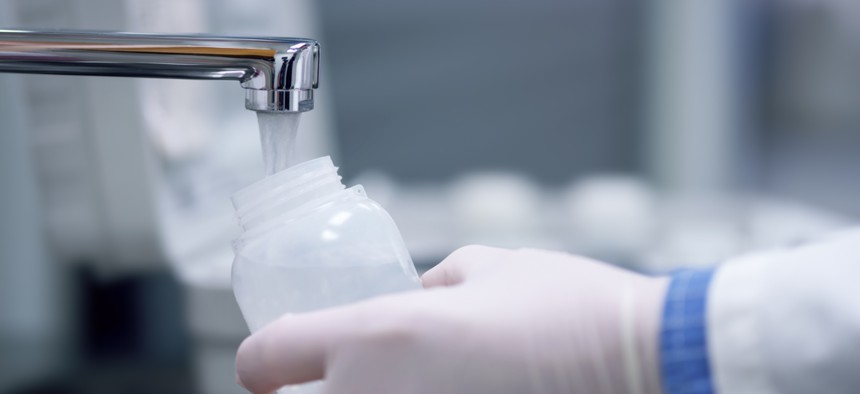E-tongue tastes water for contaminants

GettyImages/ simonkr
Researchers from the University of Massachusetts Lowell are piloting a handheld, cloud-connected electrochemical sensor that quickly tests tap water for contaminants.
Communities in northern Massachusetts may soon get a military-inspired tool that quickly tests tap water for contaminants.
With the help of a $2.5 million grant from the National Science Foundation, researchers from the University of Massachusetts Lowell will work a number of state, local and community partners as well as neighborhood groups and residents to test a handheld, cloud-connected electrochemical water sensor in Lowell, Lawrence, Dracut and Andover.
The electronic tongue, or e-tongue, grew out of the Harnessing Emerging Research Opportunities to Empower Soldiers program, a partnership launched in 2013 between the university and the U.S. Army Combat Capabilities Development Command Soldier Center in Natick to protect warfighters from toxic agents.
Despite strict federal and state regulations governing the quality of drinking water, contaminants such as lead, arsenic, copper and forever chemicals sometimes turn up in residents’ tap water. These toxins sometimes go undetected because of infrequent sampling and testing, especially in economically and racially disadvantaged communities with older infrastructure. Now citizen-scientists using the e-tongue can conduct rapid, onsite water quality testing.
A team of engineering, social science and computer science researchers will also develop a user-friendly mobile app and cloud-based platform for collecting and analyzing data that will log the time, place and contaminant. They are developing machine learning algorithms that will take the responses from the individual e-tongue devices and predict contaminant type, concentration, probable source and extent of the contamination. This information will be used to quickly notify public health authorities affected residents to take appropriate actions. Water utilities can alert affected residents and water treatment managers can adjust their treatment processes, Pradeep Kurup, a civil engineering professor at the university and the project’s principal investigator said in a video presentation.
The predictions will also help officials understand how widespread the problem is, whether it is local or systemic, and if residents in the surrounding area should to test their own water quality.
The e-testing research will also further understanding of the technologies, training and relationships required to build and manage a sustainable, scalable sensor platform for water quality testing, the grant summary stated. It will also increase awareness of water testing technologies in communities and may foster residents’ trust in local authorities.
“This project will develop tools and processes that can be replicated to involve community stakeholders and allow them to assist in monitoring water quality,” Massachusetts Department of Environmental Protection Commissioner Martin Suuberg said. “MassDEP will continue to collaborate with UMass and other stakeholders on this important initiative.”
NEXT STORY: $4M to keep fish populations afloat






